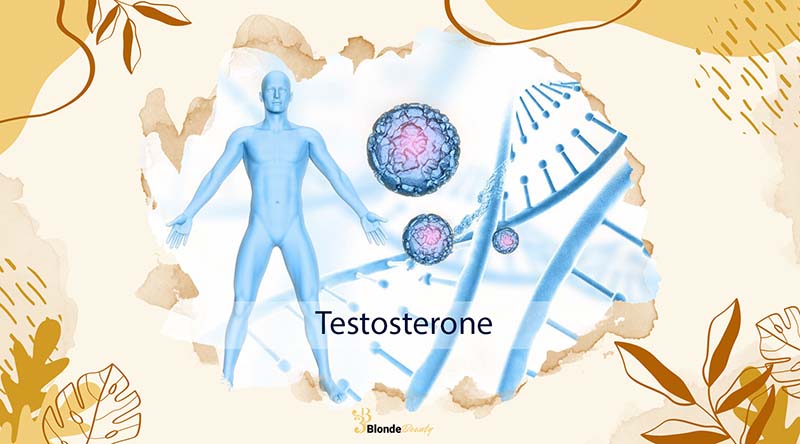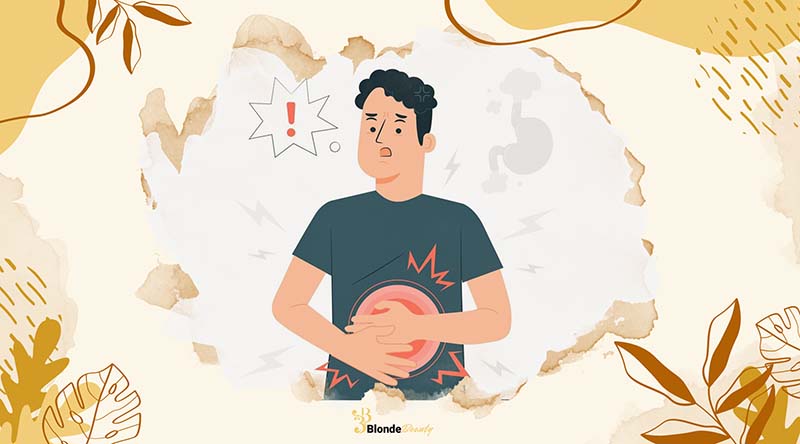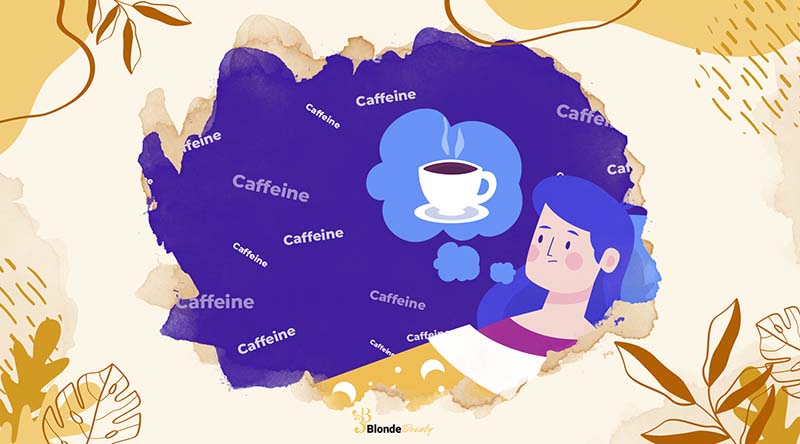Many wonder if their daily coffee intake could be impacting testosterone levels, prompting the key question: “Is coffee bad for testosterone?” Coffee, a beloved energizer, may have varying effects on testosterone due to its complex makeup.
This exploration focuses on unraveling how coffee interacts with testosterone. By dissecting coffee’s ingredients, analyzing safe consumption guidelines, and reviewing pertinent research, we aim to provide clear insights into this complex interaction.
You should also read the following articles:
- Is Garlic Good for Testosterone? Surprising Benefits Revealed!.
- What Does Unhealthy Sperm Look Like? Signs to Know.
- How to Stop Sperm Leakage: Prevention Tips.
Is Coffee Bad for Testosterone?
The impact of coffee on testosterone is a complex matter, largely due to the presence of caffeine in coffee. Studies have presented mixed findings regarding the effects of caffeine on testosterone levels.
Some research suggests that consuming caffeine, particularly before exercising, may result in higher testosterone levels. However, conflicting results have emerged from other studies, with some indicating no significant association between caffeine intake and testosterone levels.
Caffeine may boost testosterone by inhibiting specific enzymes, yet the connection between caffeine and testosterone is complex and not entirely understood Individual factors such as sleep patterns, dietary habits, and overall energy levels can also play a role in determining testosterone levels.
In essence, the connection between caffeine consumption, specifically through coffee, and testosterone is multifaceted. It’s characterized by varying research outcomes and considerations, highlighting the complexity of this relationship.

Nutrition Is Found in Coffee
A single cup of brewed black coffee, without any cream or sugar (approximately 240g), contains minimal calories, with just 2.4 calories per serving. In terms of macronutrients, it provides 0.3g of protein, 0g of carbohydrates, and 0g of fat.
Moreover, coffee serves as a source of essential minerals, notably potassium and magnesium. According to data from the USDA, here’s a breakdown of the nutritional content found in one serving of black coffee:
- Calories: 2.4
- Fat: 0g
- Sodium: 4.8mg
- Carbohydrates: 0g
- Fiber: 0g
- Sugars: 0g
- Protein: 0.3g
- Potassium: 118mg
- Magnesium: 7.2mg
This nutritional profile underscores the fact that coffee is low in calories and contains negligible amounts of fat, carbs, and protein. However, it contributes to your daily intake of potassium and magnesium, which are essential minerals for overall health and bodily functions.
Relationship Between Testosterone and Caffeine
The relationship between testosterone and caffeine is indeed noteworthy. While coffee is commonly enjoyed as a beverage for its refreshing qualities, it also appears to positively influence testosterone production in men.
Research indicates that regular coffee drinkers tend to have higher testosterone levels compared to those who do not consume coffee. However, it’s essential to recognize that this effect is short-lived. While coffee consumption may lead to a temporary spike in testosterone levels shortly after consumption, it shouldn’t be relied upon as a long-term solution for addressing testosterone deficiency.
It’s important to acknowledge that low testosterone levels can stem from various underlying factors, and seeking professional advice is advisable for addressing this issue effectively.
Testosterone-boosting supplements often include caffeine, aiming to enhance testosterone synthesis. This inclusion underscores caffeine’s potential role in supporting hormone health. However, it’s crucial to note that manufacturers often emphasize the importance of complementing supplementation with an active lifestyle and a healthy diet regimen to achieve optimal results.

Disadvantages of Using Caffeine
Using caffeine, whether through coffee or other sources, can have several disadvantages that individuals should be aware of:
Caffeine Can Cause Digestive Disorders
Caffeine can impact the digestive system, potentially leading to issues such as heartburn, indigestion, and stimulation of intestinal movement, which may result in loose stools or diarrhea.
Additionally, caffeine can exacerbate symptoms of digestive conditions like irritable bowel syndrome (IBS) and inflammatory bowel disease (IBD).
Caffeine Can Produce and Worsen HPA Axis Dysfunction
Consumption of caffeine can produce and worsen dysfunction in the Hypothalamic-Pituitary-Adrenal (HPA) axis.
This can result in increased cortisol levels and activation of the stress response system, potentially leading to stress-related conditions such as anxiety and fatigue.

Caffeine Disrupts Sleep Cycles and Circadian Rhythms
Caffeine consumption can interfere with sleep by delaying the onset of sleep, reducing total sleep duration, and impacting the quality of sleep, particularly deep, slow-wave sleep.
Moreover, consuming caffeine, especially in the evening, can delay the circadian melatonin rhythm, affecting the timing of sleep-wake cycles.

Caffeine Inhibits Thyroid Function
Caffeine has been shown to interfere with the absorption of L-thyroxine, a thyroid hormone, potentially affecting thyroid function.
Additionally, caffeine consumption may lead to reduced concentrations of thyroid-stimulating hormone (TSH), further impacting thyroid function.
Caffeine Abuse May Contribute to Chronic Fatigue Syndrome
Excessive caffeine intake has been linked to contributing to Chronic Fatigue Syndrome (CFS) and may exacerbate symptoms associated with this condition.
Caffeine Can Cause or Worsen Anxiety
Caffeine’s ability to block adenosine receptors can lead to increases in dopamine, noradrenaline, and glutamate levels, potentially resulting in symptoms of anxiety, particularly at higher doses.
It’s important for individuals to be mindful of their caffeine consumption and consider potential negative impacts, especially if they have underlying health conditions or sensitivities. Moderation and awareness of personal tolerance levels are key to mitigating these potential disadvantages.
Effects of Caffeine on Other Hormones
Caffeine doesn’t just impact testosterone; it also affects a range of other hormones in the body:
- Cortisol: Known as the ‘stress hormone,’ cortisol plays a vital role in responding to stress, regulating glucose levels in the blood, and promoting energy levels. Caffeine interacts with cortisol, often increasing its levels. While this can be beneficial in certain situations, maintaining a balance is crucial. Both excessive and insufficient cortisol secretion can have negative effects on the body’s processes.
- Adrenaline: Another hormone involved in the ‘fight or flight’ response, adrenaline provides sudden bursts of energy during stressful situations. Coffee consumption supports this process by raising blood pressure and boosting energy levels, preparing the body to handle stress.
- Serotonin and Dopamine: These hormones are responsible for regulating mood and creating a sense of well-being. Research indicates that caffeine can interact with serotonin and dopamine levels. While caffeine triggers the release of serotonin, it also prolongs the presence of dopamine in the brain, enhancing its effects over time.
However, it’s important to note that excessive coffee consumption can lead to addiction and may contribute to issues such as sleep apnea, which is a significant risk factor for depression. Finding a balance in caffeine intake is key to reaping its potential benefits while minimizing any negative effects on hormone levels and overall health.
Reasonable Frequency of Coffee Use
According to guidelines from the U.S. Food and Drug Administration (FDA), individuals should limit their caffeine intake to no more than 400 mg per day to avoid adverse health effects. Considering that an average cup of coffee contains approximately 70-100 mg of caffeine, this translates to a recommendation of no more than five cups of coffee per day for adults.
Additionally, it’s advisable to avoid consuming coffee or other caffeinated beverages at least six hours before bedtime. For instance, if your typical bedtime is at 10 p.m., it’s best to refrain from consuming caffeine after 4 p.m. This helps reduce the risk of insomnia and ensures a restful night’s sleep.
Individuals who are particularly sensitive to caffeine should exercise greater caution with their consumption. Moreover, certain health conditions may necessitate a lower intake of caffeine than the recommended level. Consulting with a healthcare professional can provide personalized guidance on caffeine intake tailored to individual needs and circumstances.
Conclusion
In conclusion, regarding the question ‘Is coffee bad for testosterone?’, evidence suggests that coffee is not a dependable means to enhance testosterone levels. Research shows mixed outcomes on its impact, indicating it may not effectively address testosterone deficiencies.
Despite this, coffee interacts with other hormones, potentially offering benefits for some, but awareness of tolerance and addiction risks is crucial. Thus, while not a testosterone booster, coffee has its merits and can be part of a balanced lifestyle when consumed in moderation.
Visit other Blondebeauty articles to gain more health knowledge.

Laureate Professor Clare Collins
Professor Clare Collins is a leading expert in nutrition and dietetics at the School of Health Sciences, part of the College of Health, Medicine and Wellbeing. Her work is changing the way we think about food and health. She grew up as one of nine children and was the first in her family to finish high school and go to college. This background gave her a strong work ethic and a deep appreciation for seizing opportunities.
As the Director of the Hunter Medical Research Institute’s Food and Nutrition Program and a recipient of three NHMRC Research Fellowships, Professor Collins is making a big difference in public health. She focuses on helping people who are often overlooked, using new technologies like apps and online programs to improve their nutrition and reduce the risk of chronic diseases.
Professor Collins is well-respected and has been recognized as a Fellow in four major health and science organizations. She leads a diverse team of experts, including dietitians, computer scientists, and engineers, working together on global health projects.
Her achievements are impressive. She has received over $29 million in research funding, published more than 450 papers, and helped 35 PhD and Master’s students complete their degrees. She’s also active in sharing her knowledge with the public. She has developed tools like the Australian Eating Survey and the Healthy Eating Quiz, and she often appears in the media to talk about nutrition.
PUBLISHED ARTICLES
- Collins, C. (2019). “The Effect of a Pilot Dietary Intervention on Pain Outcomes in Patients Attending a Tertiary Pain Service.”
- Collins, C. (2022). “Variation in cardiovascular disease risk factors among older adults.”
- Collins, C. (2022). “Evaluation of an online intervention for improving stroke survivors’ health-related quality of life: A randomised controlled trial.”
These articles show Professor Collins’s commitment to understanding how better nutrition can improve health. Her work is important for researchers, doctors, and anyone interested in healthy living.
